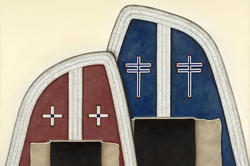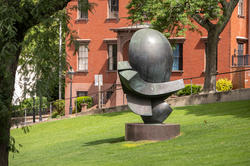The latest speaker in RISD’s Indigenous and First Nations Artist Series discusses her own abstract work honoring generations of strong Indigenous women.
Native American Storytellers Share Vital Knowledge with RISD Students
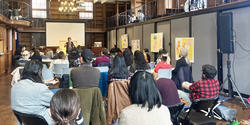
“This perfect place, Noepe, is a gift from the creator,” says Indigenous storyteller Jonathan James Perry, a member of the Wampanoag Tribe of Aquinnah. “We still live here, alone—except for the Kennedys.” Perry’s quiet sense of humor and laid-back storytelling style infuse his tales of the Aquinnah Wampanoags and the creation of their home on Cape Cod and Martha’s Vineyard.
One of the last speakers in an extensive, student-organized series of Native American storytellers, Perry described an ancient giant named Moshup who formed the island of Martha’s Vineyard by dumping out the sand that had accumulated in his moccasins. “Wampanoag means people of the first light, and our stories date back to before the continental waters dried up,” he told the listeners, who quietly sketched and sampled traditional Indigenous foods in the College Building’s Old Library.
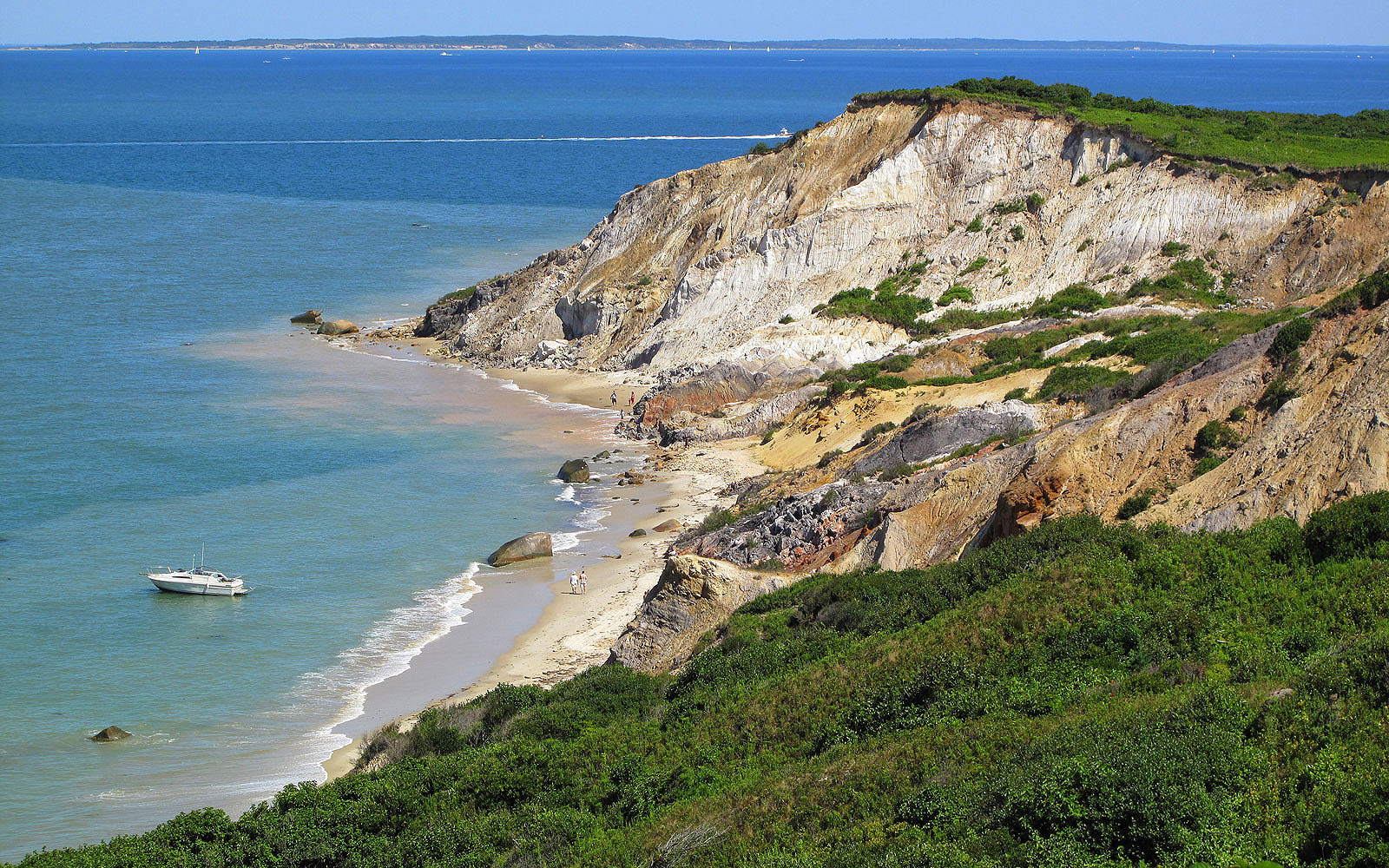
The event was hosted by Assistant Professor Angelo Baca, Navajo and Hopi, who taught a fall course on Native American oral traditions. He thanked Perry and the other speakers of the day—Waya’aisiwa Gary Keene, Fern Naomi Renville, Roger Fernandes and Sunny Dooley—before presenting gifts of gratitude to undergraduate students Pei-Yu Hung 24 ID and Andres Guevara 25 JM, who organized the series as part of a Collaborative Study Project for which he served as faculty advisor.
“Native American oral traditions—which include storytelling, teachings, family and tribal history, and contemporary Indian literature—lie at the heart of tribal culture,” Baca says. “It is mainly through oral tradition that Indigenous cultures have been preserved and transmitted through the generations. Storytellers are the original professors, mentors and experts, and some of their stories are older than the concept of America.”
“It is mainly through oral tradition that Indigenous cultures have been preserved and transmitted through the generations.”
Each of the events in the series focused on reciprocity, and participants were invited to bring gifts for the storytellers. “This act created genuine connection between the storytellers and the participants,” Hung explains.
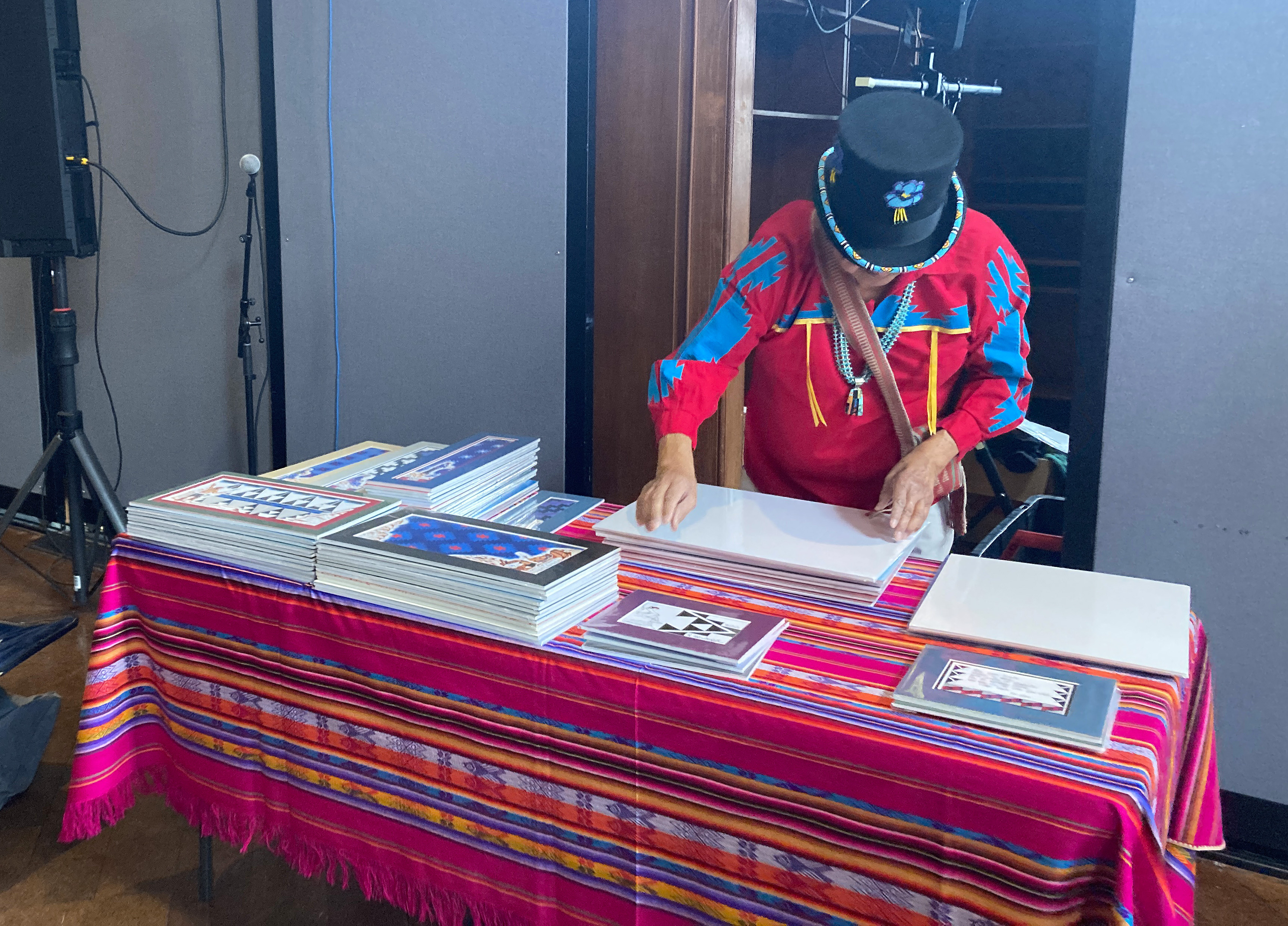
The series began with a lecture on ecology by Silvermoon Mars LaRose, assistant director of the Tomaquag Museum and member of the Narragansett tribe. She discussed some of her favorite Indigenous plants and the value of traditional ecological knowledge before sharing stories that connect listeners to the gifts of our ecosystem.
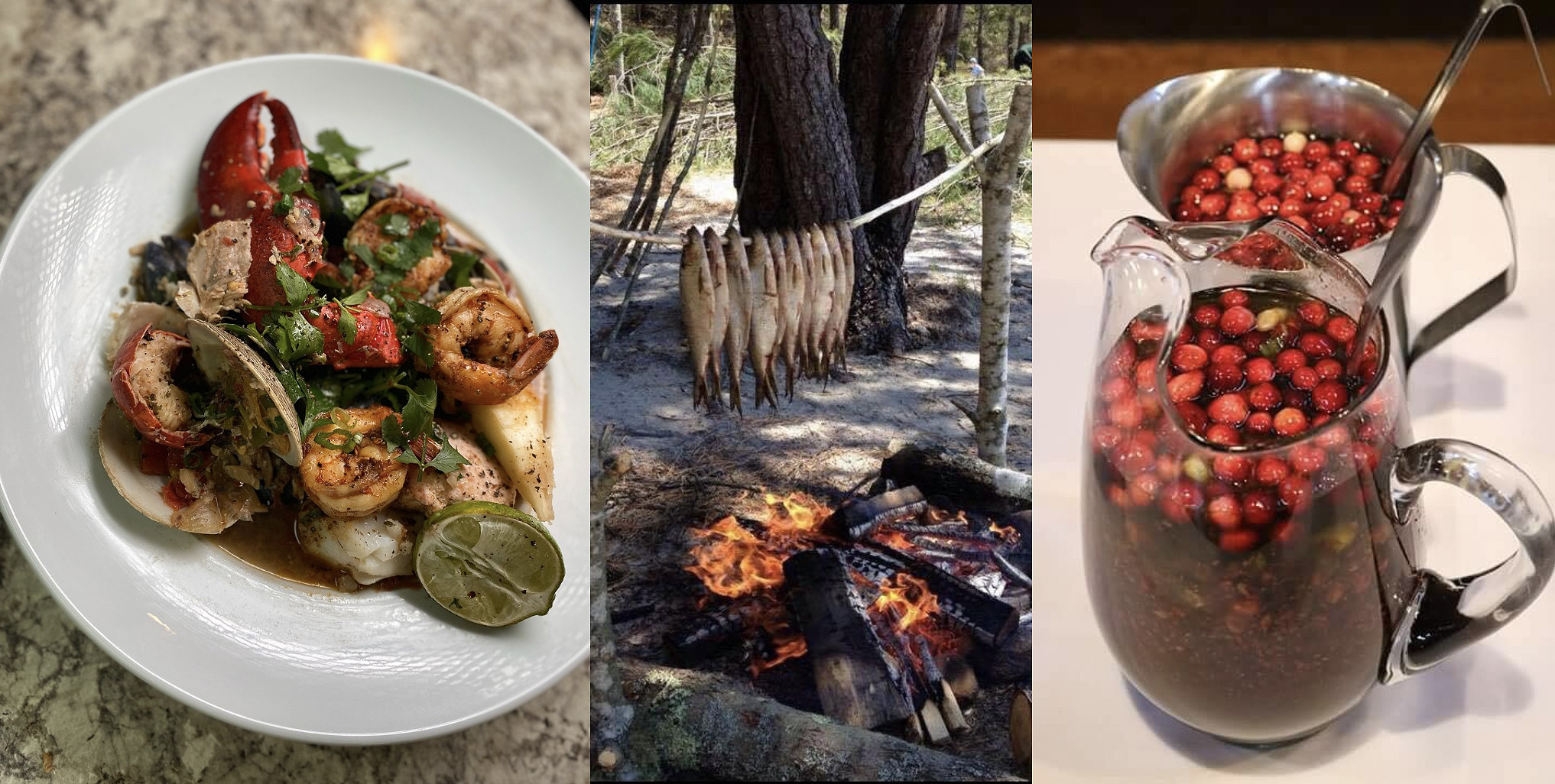
The next topic to be covered was food, in a lecture presented by Cheyenne Pocknett-Galvin, who spoke on behalf of her mother, Wampanoag chef Sherry Pocknett, founder of Sly Fox Den restaurant. She was joined by Perry, who is dedicated to preserving food sovereignty and passing cumulated knowledge along to future generations.
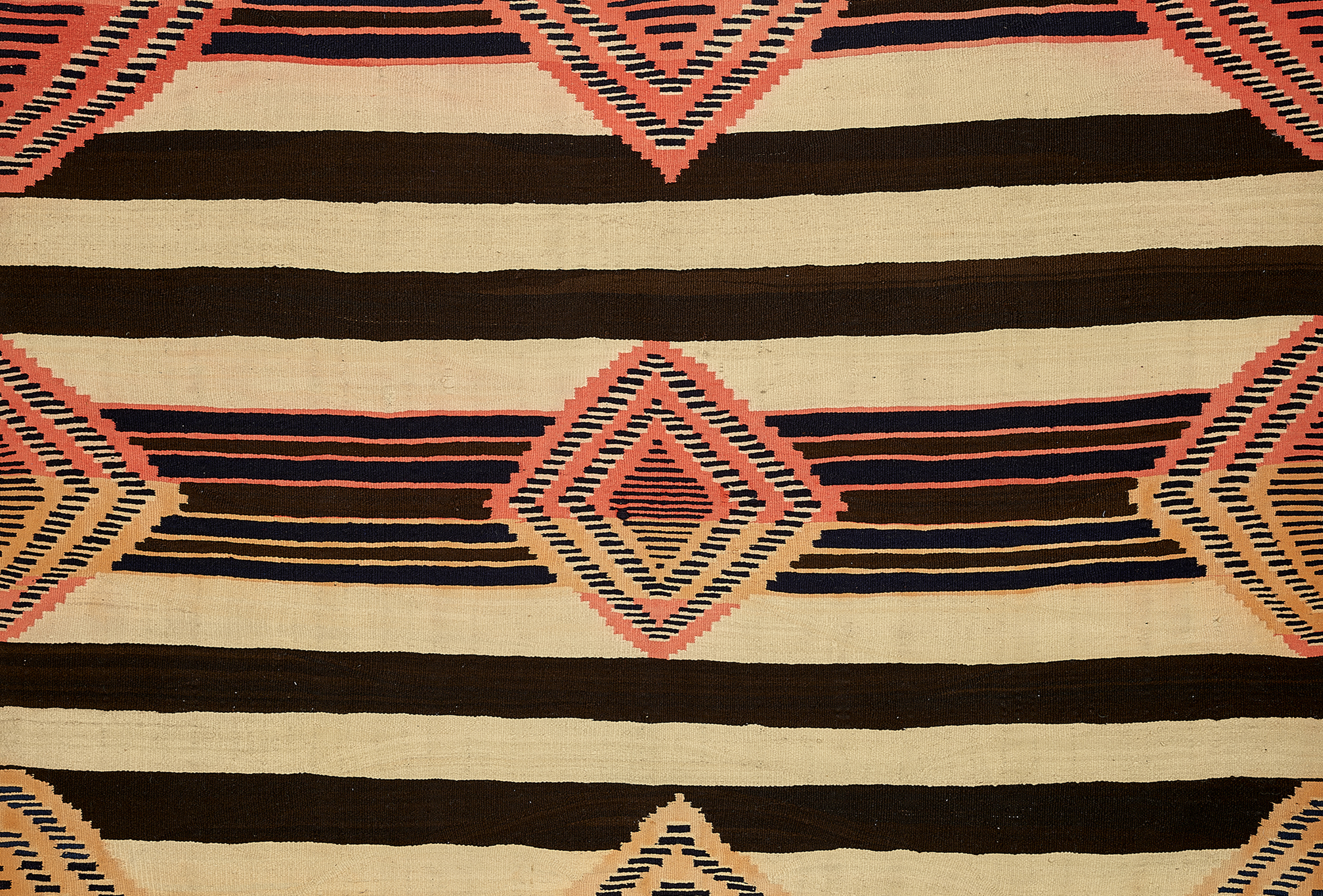
Other events in the series focused on storytelling itself (Miranda Belarde-Lewis of the Takdeintáan Clan of the Tlingit Nation and Roger Fernandes of the Lower Elwha Band of the S’Klallam Indians); fair use versus cultural appropriation (Trevor Reed, associate professor of law at Arizona State University); the embodiment of stories (storyteller, director and playwright Fern Renville); and stolen objects (RISD Museum Curatorial Fellow and citizen of the Navajo Nation Sháńdíín Brown and storyteller/weaver Sunny Dooley of the Navajo Nation).
“Every living person is the center of the universe, and there is divinity in each of us.”
At the main storytelling event in the Old Library, Dooley described herself as single and explained that “single Navajo women walk around the Earth in a leisurely manner. Every living person is the center of the universe,” she added, “and there is divinity in each of us.” She went on to thank Baca and his mother, who provided listeners with her traditional Navajo stew and bread, and then stopped the audience from applauding and showed them, instead, how to use their hands to capture their breath in a blessing.
—Simone Solondz
March 27, 2023
